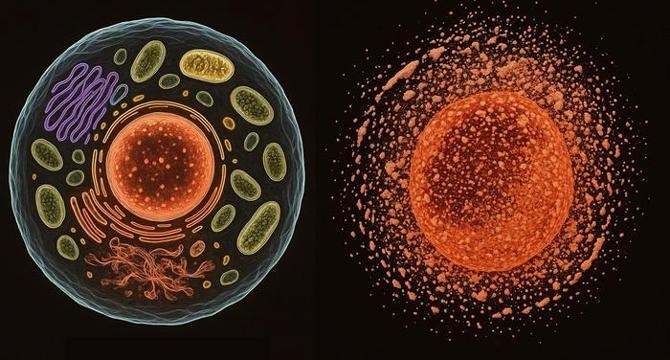Bioengineer
1w
168

Image Credit: Bioengineer
Could Halting Cell Death Unlock Medicine’s Final Frontier on Earth and Beyond?
- Recent research challenges the negative perception of necrosis, highlighting its role in biological aging and systemic degeneration.
- Necrosis differs from programmed cell death like apoptosis by causing uncontrolled cellular collapse and inflammation.
- Dysregulation of calcium ion homeostasis is central to the necrotic process, leading to inflammatory responses and tissue damage.
- Necrosis releases DAMPs, accelerating tissue degeneration and contributing to diseases like chronic kidney disease and Alzheimer's.
- Kidney health is particularly affected by necrosis, making it a crucial target for preventive and therapeutic strategies.
- In space travel, necrosis poses challenges due to accelerated aging and organ dysfunction, especially in the kidney.
- Experts suggest inhibiting necrotic pathways could promote tissue regeneration and restore physiological balance.
- Necrosis triggers mitochondrial dysfunction, inflammatory responses, and systemic degeneration, impacting multiple organ systems.
- Interventions targeting necrosis could involve modulating calcium channels, stabilizing mitochondria, and reducing inflammation.
- By understanding necrosis as a manageable driver of aging and disease, new treatment strategies could emerge for age-related conditions and organ failure.
Read Full Article
10 Likes
For uninterrupted reading, download the app